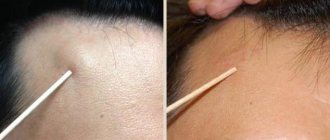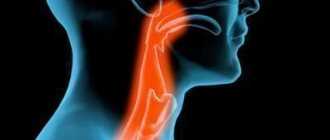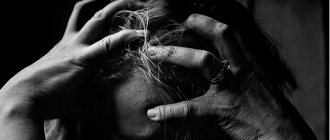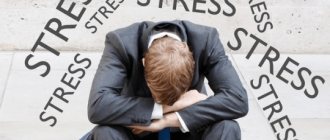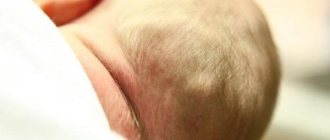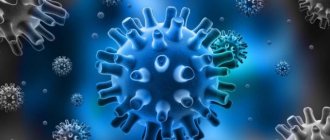How exactly does it hurt?
Stressful muscle discomfort manifests itself individually. But most often, patients complain about the intensity of the sensations. It was as if the body had actually been working hard or exercising hard. Pain symptoms appear in various parts of the body, they can even move throughout the day. The legs, chest area and neck often hurt. But it also happens that it becomes difficult for a person to smile or move his tongue.
There are also cases where several days passed after severe stress, and one morning the patient simply could not get out of bed - pain and weakness covered all available muscles. After 3-4 days, symptoms may disappear forever. But in each case the process is individual. Some suffer for a month, while for others the pain goes away after a couple of hours. It depends on the characteristics of the body and the intensity of the shock experienced.
Why is this happening?
Muscle pain after stress has various causes. These factors can influence separately or accompany each other.
| Cause | Description |
| Hypertonicity in muscles | When we experience stress, especially severe stress, a large portion of adrenaline enters the body. This hormone, created for fight and pursuit, establishes its own order in the body. The greater the tone the muscles experience, the greater the chances of escape - this is the rule of nature. But any physical stress is a load, after which certain processes for recovery begin. Pain is a signal that the muscles have overworked and need rest. |
| Regular stress | If stress is regular, adrenaline is constantly released - and the muscles do not rest. Sooner or later the load will become unbearable, and the person will feel muscle pain. The body should not work for wear and tear, but with nervous disorders this is exactly what happens. |
| Unusual movements | In the process of stress, a person himself does not notice how his body shrinks or takes uncomfortable positions. Some curl their toes in their shoes with all their might, straining their feet and ankles. Someone shrinks into a ball and remains in this position for a long time. This is another reason why a person experiences muscle pain after stress. As a rule, those areas that were affected become painful. |
| Hypersensitivity | At the moment of nervous shock, a distortion of pain perception occurs. People with central nervous system problems may generally be constantly hypersensitive to stimuli. And all the stimuli that would normally be perceived imperceptibly begin to cause pain and discomfort during or after stress. |
| Dehydration | Anxiety states are almost always accompanied by increased sweating and frequent urge to go to the toilet. The body loses fluid, which can also cause muscle pain. Nervous people, dystonics, and panickers always feel unwell in hot weather: dehydration becomes even worse in such conditions. |
| Psychogenic pain | Nervous patients often suffer from imaginary, illusory painful sensations in the body, which intensify after stress. Sometimes a person feels as if his whole body is covered in bruises and it hurts to touch them. Often there is a feeling of weakness, bruises, and muscle fatigue. Such pain can be localized in certain areas of the body, or it can be felt blurry when the patient is unable to describe exactly where the muscles hurt after stress. |
The best way to relieve nervous muscle discomfort is to eliminate the main cause of this symptom: stop being nervous, getting irritated over trifles, and putting the central nervous system in order. And this process does not take a day or a week. The work will be complex, complex, and sometimes a neurologist and psychotherapist will be involved. Muscle relaxation techniques help relieve tension. It is also necessary to monitor the water resources of your body, drink more fresh, clean water, which is vital for our muscles.
Coffee and tea are not a substitute for water! And if you drank cup after cup of these drinks all day, you not only did not give your body the right amount of water, but also reduced the amount available.
And, of course, at least slightly trained muscles feel best. Do a light 10-minute stretch every day. Light dumbbells are suitable (they can be replaced with multi-liter plastic containers filled with water to a level you can tolerate), walking, stretching, and bending the body. But in any case, including a warm-up in your daily routine will not replace a favorable, calm environment in which there is no place for stress.
Stress causes irreparable damage to the health of every person. In this case, the body responds to negative emotions and excess tension based on nervousness. In addition to this is muscle pain (myalgia) throughout the body. According to experts, this is a completely natural reaction to external physical and psychological stimuli. These problems can and should be dealt with. If the disease is not treated in time and proper prevention is not followed, the progression of coronary heart disease or heart attack is high. Does your body hurt from stress?
Body pain due to stress is called myalgia
Can joint pain be caused by nervousness?
Joints are movable connections between bones. Each of them is covered with special cartilage, which is responsible for firmness and elasticity in a given place and for the correct distribution of loads in the joint.
Disturbances in the functioning of the bone joint can be caused by a number of different reasons. These include diseases such as arthritis or arthrosis, fractures, dislocations, various cracks or rupture of cartilage. Such problems are often accompanied by consequences in the form of nervous tension. However, can joint disease be caused by nervous disorders?
Stress and joint disease. What's the connection?
Stress is the presence of the human body in a tense state, which is explained by its readiness to react to perceived dangers from the outside world. People of all ages are familiar with this condition firsthand.
The danger of stress lies in the negative impact of the hormone produced by the adrenal glands on the entire body as a whole. This applies to a greater extent to the nervous system.
Negative stress can affect joints in the following ways:
- The amount of unwanted hormones in the blood increases . This prevents the necessary production of joint fluid, which is a lubricant and is responsible for the very elasticity of the joint. As a result, the cartilage in the joints dries out and begins to crack, thereby causing discomfort and unpleasant pain.
- Stress causes muscle spasms . Since the strongest muscles are often located around the joints, when spasms occur, the pliable bone joint is compressed, deformed and ultimately destroyed.
- Destruction and deformation of joints can also be caused by deterioration of capillary patency and slowing of blood flow .
Development of the disease and symptoms
Changes in the functioning of the joints lead to a number of diseases, which should be diagnosed at the first symptoms.
- Osteochondrosis, scoliosis or chondrosis . During periods of depression or stress, a person contracts uncontrollably, like any animal preparing to attack or flee. This leads to contraction of the cervical and lumbar muscles. Deformation of one of the most important organs, the spine, occurs, namely, displacement of the discs relative to each other. The curvature of the skeleton leads to muscle spasms, reflected in painful sensations in the knees, elbows and neck.
- Arthritis, arthrosis and coxarthrosis . Nervous stress weakens the immune system and increases the risk of viral infections entering the body. The production of adrenal hormones provokes a decrease in the amount of joint “lubrication”, which causes inflammation of the joints.
- Rheumatism . Due to deformation or destruction of cartilage and joints in the area, inflammatory processes are formed, accompanied by aching sensations in the body.
Measures to eliminate joint pain
The connection between physical and neural processes is controlled by a special system of the brain called limbic. After a series of studies, scientists have identified a direct connection between physical activity and psychological stability. A person who plays sports is much less likely to experience stress or depression.
Based on the data on the connection between the tense state and painful sensations in the joints, conclusions have been drawn about methods for correcting the situation. The tips are quite simple and logical:
- The higher the level of pain, the more difficult it is for the body to cope with it . This statement applies not only to physical pain, but also to moral pain. You should not ignore the depressed state, which begins to damage your well-being. First of all, you should calm yourself down, distract yourself, rethink the problem, and seek help from your family and friends. If the joints are severely and long-term, then you need to visit a doctor and start treatment.
- Sport - is life . It is an active lifestyle that helps to neutralize excessive hormonal surges and achieve harmony with your own emotions. We are not talking about extreme loads and exhaustion of the body with heavy and exhausting exercises. You can spend your free time cycling along the beautiful streets, jogging in the morning, walking long distances or dancing aerobics. Moreover, physical activity tones the entire body as a whole, corrects posture and makes a person more fit and beautiful.
- It is strongly recommended to give up bad habits and normalize your daily routine . Smoking, alcohol, and lack of sleep have a detrimental effect on the functioning of blood vessels. It’s better not to aggravate the situation and give up things that are harmful to your health.
- Noisy places should be avoided . Where there are crowds, large concentrations of traffic, loud music, and so on, you can wear special earplugs or other similar accessories that suppress noise. But there is no need to try to drown out street noise with loud music on headphones. It will get even worse.
- It is necessary to give up too intense computer games that constantly make you nervous. The fact is that when going through another difficult mission, a person gets too used to the game image and feels what happened on the computer as if it happened to him. But at the same time he remains motionless on the chair. All muscles are under severe tension, and the limbic system malfunctions, because the physical state of rest does not fit in with the psychological experiences of the feeling of active work.
Any person sooner or later faces various diseases, however, often everyone looks for complex reasons, not paying attention to the more obvious facts.
Yes, sometimes it is stress and excessive nervousness that can greatly worsen your health. You should not cause yourself and your body discomfort with unnecessary worries.
It is better to spend the time spent on despondency and sadness on self-improvement and playing sports.
Source: https://sustavos.ru/mogut-li-bolet-sustavy-na-nervnoj-pochve/
Causes of pain after stress
Stress is formed on a nervous basis. Pain is just a reaction of the muscles and the body as a whole to previously suffered dangers and shocks. Each person feels it in his own way: a healthy person experiences slight discomfort in the body, a sick person may develop serious problems that can complicate his health. To prevent a stressful situation, and so that your back, legs, arms and other parts of the body do not hurt in the future, you need to:
- If it is possible to experience a stressful state and accompanying pain, you need to have sedatives with you. These drugs can quickly bring a person’s condition back to normal in conflict and extreme situations.
- Due attention must be paid to the inner mood. If there is a strong desire, everyone can teach themselves and their body to react with restraint to various situations that arise due to nervousness.
- Distract your mind as quickly as possible with other important life situations.
Main features
Myalgia is accompanied by dull and aching muscle pain. A person feels discomfort because... all body movements are constrained. In some cases, anemia may occur. The pain can be distributed throughout the body or in specific points of the head, back, legs, arms. An increase in these symptoms is often observed during nervous and physical overload, during stress. After the doctor detects the disease, based on the patient’s stated facts, he will make a diagnosis and prescribe comprehensive treatment. In this case it is necessary:
- remove the inflammatory focus;
- remove spasm in aching muscles;
- improve blood circulation;
- replenish blood supply to muscle tissue;
- restore the body's metabolic processes.
Legs hurt after stress
The main difference between neurosis and other mental illnesses is the fact that the patient realizes that he is not healthy and his consciousness is not impaired. The condition of a person suffering from neurosis is not burdened by delusions or hallucinations, and reality is perceived adequately by him.
Neurosis affects various systems of the body, primarily its psyche, which can be reflected in the form of psycho-emotional disorders.
Neurosis and its mental symptoms:
- Emotional stress;
- A peculiar response to stress (closedness, isolation, fixation);
- Memory impairment;
- Increased sensitivity (irritability in bright light, loud sounds);
- Frequent, causeless mood swings;
- Apathy and loss of interest in life.
The physical symptoms of neurosis are very diverse and are in turn divided into vegetative and physical. Disorders that arise in parts of the body associated with the autonomic system are functional and do not have an organic origin. That is, the patient complains of pain and feels certain disorders in a part of the body, but no specific pathological abnormalities are found in him.
Neurosis and its vegetative symptoms:
- Vasomotor syndrome (headaches, dizziness, blood pressure surges);
- Vegetative-skin syndrome (itching, rash, redness or pallor of the skin);
- Visceral syndrome (difficulty breathing, problems with swallowing, frequent urination, abnormal stool);
- Vegetative-trophic syndrome (trophic ulcers, muscle atrophy);
- Allergic syndrome (swelling, rash, itching, etc.).
Worth seeing: Symptoms and treatment of neurosis in adults
Neurosis is often combined with a disease such as vegetative-vascular dystonia or VSD. In addition to headaches and heart pain, muscle and joint pain are considered quite common with VSD.
Headache is a vegetative sign of neurosis
Neurosis and its physical (bodily) signs
Pain and other various unpleasant sensations in certain parts of the body are also a sign of neurosis. Moreover, if with an organic disease of the nervous system the pain has a clear localization, then with neurosis the pain can move from one part of the body to another, and its severity will directly depend on the psycho-emotional state of the person.
Most often, people suffering from neurosis experience a headache. According to statistics, in more than 50% of cases, neurosis is accompanied by a headache.
And this is not surprising, because neurosis is a disease of the nervous system and it is the brain that suffers.
But in the modern world, neurosis has increasingly begun to cause pain in those parts of the body that, at first glance, are not directly related to the activity of the brain. Let's consider several variants of the manifestation of neurosis that are not so common.
Pain due to neurosis in the back and legs
Pain due to neurosis is noted in the back and legs, which in turn at first glance is very similar to lumbosacral radiculitis.
However, a distinctive feature of pain in neurosis will be the lack of clear localization.
If the local painful point is in the leg, then in addition to pain, some tingling, numbness or a pins and needles sensation may be felt. There is a decrease or, conversely, a clear increase in sensitivity.
Back pain due to neurosis can appear with the slightest injury to the spine and last for quite a long time. In addition, due to strong suggestibility, a person suffering from neurosis may experience pain in the back and legs even without any external influences. For example, after talking with a patient with radiculitis, he “discovers” exactly the same signs of the disease.
Legs with neurosis can get sick even without injuries or other influences
Muscle pain due to neurosis
Muscle pain can be psychogenic in nature. Such pains do not have a clear localization and obvious causes.
They are characterized by obvious exacerbations during stress, anxiety, muscle pain increases and during depression.
As soon as the stressful effect ends and a period of rest begins, the pain subsides, but with the slightest overload of the nervous system, it returns again, manifesting itself with even greater force.
Very often, neurosis also manifests itself in muscle pain, occurring with severe physical fatigue, as well as with the monotony of work performed. This type of neurosis can also be provoked by a sedentary lifestyle and severe emotional overload.
For neurosis manifested by muscle pain, complex treatment is used - this includes medications, psychotherapy and therapeutic exercises, it is possible to use individual diets and adjustments to the daily routine, and sometimes physiotherapy is included.
It should be remembered that with neurosis, as with any other disease, timely diagnosis and prescription of an individual course of treatment are very important. But as everyone knows, it is easier to prevent the occurrence of a particular disease than to cure it. To do this, let us consider in more detail the causes of neuroses.
Worth seeing: Burning skin with neurosis
Signs
Myalgia is accompanied by aching and dull pain in the muscles when pressed, weakness, and stiffness of the body. Muscle pain may extend from the head to the lower extremities (fibromyalgia) or be localized to a specific location, such as the neck or back of the head (cervical myositis).
Signs of this disease can intensify with nervous overload, stress, and physical activity. After the diagnosis is made, complex treatment is prescribed:
- Removal of the inflammatory focus.
- Removing muscle spasms.
- Improved blood circulation.
- Replenishment of blood supply to muscle tissue.
- Restoration of the body's metabolic processes.
Often muscle pain occurs in the sternum, shoulder girdle and occipital region. To avoid this, you need to adhere to preventive rules:
- With a sedentary lifestyle, you need to sit straight, straighten your neck muscles and walk more often. Walking in the fresh air will help you avoid stress.
- Correct posture is the key to health.
- Perform special exercises aimed at stretching and relaxing muscles.
Causes of leg pain
As is the case with any other organ, if pain occurs, first of all, you need to contact a medical institution for qualified help. The success of treatment depends almost 100% on how accurately the diagnosis is made. So, the main causes of pain in the legs can be:
- joint diseases or injuries;
- muscle disease or injury;
- vascular diseases;
- diseases of the spine;
- peripheral nerve diseases.
The most common diseases of the leg joints include:
- Arthrosis. Its main manifestation is incessant pain, characterized by alternating periods of temporary improvement with periods of exacerbation, as well as a feeling of stiffness during movement.
- Arthritis. Its main symptoms are severe pain, swelling, and redness in the area of the affected joint.
- Gout. Like arthritis, it causes constant pain, which, in the absence of adequate treatment, only gets worse.
- A less common cause of leg pain is muscle disease in the lower extremities. The most common of them are:
- Myositis. This disease is chronic. Its main manifestations are weakness in the legs, pain, which increases significantly when walking and running.
- Fibromyalgia. Its main symptoms are a decrease in the pain threshold in the muscle area and periodic pain.
- Muscle rupture causes sharp, unbearable pain.
- Vascular diseases, along with joint diseases, are the most common leg diseases. Most often, people complaining of leg pain are given the following diagnoses:
- Atherosclerosis of leg vessels. It is the formation of plaques on the walls of blood vessels, which subsequently can lead to their complete blockage. This disease causes pain of a compressive nature, regular numbness and slight blue discoloration of the limbs.
- Thrombophlebitis. This disease is accompanied by unbearable “burning” pain. It is quite dangerous, since at a certain stage the process of blood clots begins.
- Phlebeurysm. The pain is quite strong, especially during and after physical activity. There is a constant feeling of heaviness, fatigue, and sometimes swelling is observed. The veins in the legs become significantly enlarged and deformed; they begin to bulge throughout the leg. In the last stages of the disease, trophic ulcers may develop.
- Quite often, pain in the legs is a consequence of various diseases and injuries of the spine. So, for example, with a vertebral hernia, osteochondrosis, sciatica, a person may experience quite strong pain in the lower extremities, although the immediate problem lies in the spine.
As a result of diseases such as osteochondrosis, scoliosis, displacement of the vertebrae, an incorrect distribution of the load on the limbs occurs, as a result of which one leg is subjected to greater load, and as a result, there is a greater likelihood of developing diseases of the joints and blood vessels.
Numbness of body parts after a stressful situation
Numbness is a painful, uncomfortable tingling sensation, which is accompanied by a decrease in skin sensitivity, and less commonly, a disruption of the normal functioning of the joints of the fingers of the right or left foot or hands. Parts of the body become numb because a nerve is compressed or the blood supply to tissues is disrupted. Sometimes this ailment is a key sign of diseases of the nervous system. Loss of sensation in some parts of the body may indicate serious illnesses, such as a stroke. It is necessary to seek the help of a doctor if body parts are removed and:
- no ability to move your toes or hands normally;
- feeling weak, dizzy;
- the bladder empties involuntarily;
- partially or completely unable to speak clearly or move adequately.
Numbness often affects a person’s limbs
Treatment and prevention
If you have pain in the muscles of your back, chest, arms, legs, then you can soothe and warm them up with a heating pad, a warm bath, a heated grain pillow, a compress, or a warming ointment. It is necessary to carry out these measures, because The thermal effect is designed to improve blood circulation at the site of pain, increase the body's energy supply, and help to quickly restore the affected muscles.
Myalgia often forms in the thoracic region, occipital region, and shoulder girdle. To avoid pain in these areas due to stress, you should follow a number of preventive measures:
- keep your posture as straight as possible, align your neck muscles, walk as often as possible;
- perform light physical exercises to stretch and relax the muscles of these parts of the body.
You can relieve pain in the affected area that occurs due to stress by using magnesium, potassium and calcium. Homeopathic remedies are the best way to help. When choosing a drug, you must strictly follow the instructions.
Homeopathy is effective for myalgia
If you still cannot cope with constant pain on your own, you must seek the help of a qualified doctor. After a thorough examination, a professional will discover the sources and causes of the disease. In almost all cases of myalgia, experts advise using Diclofenac (a non-steroidal anti-inflammatory drug), which relieves pain. This drug is produced in the form of ointments, injections, and tablets. The course of treatment takes 10 days. During the first days, you need to carefully monitor your skin to avoid side effects.
You can get rid of the aching pain with the help of a course of massage and therapeutic exercises. Acupressure helps eliminate muscle tone and stiffness, helps blood circulation, and saturates muscle tissue with the necessary amount of oxygen. Despite the physical pain, to prevent the nervous system it is necessary to visit a psychologist several times a week. During the treatment process, you should adhere to proper sleep patterns, nutrition, drink plenty of water, and do hour-long walks.
Neglected, untreated muscle pain causes irreparable damage to the spine. In this case, the intervertebral discs wear out, which is fraught with the formation of the most dangerous complications: hernia, protrusion, osteochondrosis.
You can achieve the maximum result of fully relieving muscle pain from stress by identifying the cause in time and performing high-quality professional treatment aimed at removing tension in the muscles.
Stressful situations at work and troubles in your personal life negatively affect your condition. A person feels pain stress. Aching pain in the joints creates nervous tension. You may feel like your left arm is numb, a feeling of heaviness in the abdomen, or your legs hurt. Often, under stress, it is difficult to determine the source of pain; it may seem that the whole body hurts.
Stress pain can occur in different parts of the body
Nervous shocks can be caused by various reasons: accident, death, injury. This type of stress changes a person's lifestyle.
Another type of stress, prolonged, appears as a result of prolonged exposure to unfavorable factors. This phenomenon also occurs due to low blood circulation and metabolic disorders in the body.
Prolonged stress often appears due to drinking, smoking, poor sleep, and poor work.
Nerve-related joint pain: symptoms and treatment
We all know that joint pain causes nervous tension. However, is the opposite statement true? Can joints hurt due to nervous overstrain and exhaustion or not? Let's try to figure it out
Stress
As you know, nervous tension creates stress. Stress is an alert state of the body, readiness to respond to negative changes in the environment, mobilization of nervous forces.
Stress is not something to be afraid of. As you know, stress penetrates our body even before birth and accompanies our entire life. .
There is only one category of people free from this condition - the dead.
At the same time, excess nervous tension that occurs due to stress can be considered a negative factor that affects our lives. The fact is that the adrenal hormone, which causes stress, adrenaline and norepinephrine, has a generally negative effect on our nervous system.
And these two hormones have a negative effect on other systems of the body - on vision, on the reproductive system, on muscles and blood circulation. It has been proven that with an excess of adrenaline in the blood, the likelihood of heart attacks, strokes, muscle spasms is higher, and with a prolonged increase in them, the likelihood of malignant tumors appears.
In this regard, it is worth mentioning the “Ukhtomsky symptom”. When a stimulus arises in the cerebral cortex that is associated with a source of pain, stress, or something else, the central nervous system “loops” on it. The stronger the pain and stress, the more we worry about them, and the more we worry and worry about them, the more we feel them.
As a result, a person cannot free himself from nervous tension and direct the strength and reserves of his body to fight the true causes of pain or causes of stress. Therefore, you can very effectively fight some diseases, including joint diseases, simply by relieving pain and inflammation.
Types of stress
Typically, excessive stress occurs due to unexpected one-time shocks.
This could be experiencing a natural disaster, violence, the death of a close relative, physical trauma, being in a life-threatening situation, or social stigma.
This type of stress usually causes a sharp change in a person's behavior and is clearly visible both to others and to the person himself. In this case, a massive one-time release of stress hormones occurs.
The second type of stress is prolonged. It occurs as a result of prolonged exposure to negative irritating factors on the body over a long period of time .
In this case, the concentration of stress hormones in the blood increases gradually.
This may also be due to insufficient activity of blood circulation and metabolism - stress hormones are released in greater quantities than our body is able to remove them.
Prolonged stress is most often caused by chronic use of alcohol, drugs, smoking, lack of sleep, work that brings only negative emotions, life in a big city, increased noise levels and some other factors.
Nervous joint diseases
The most common nerve-related joint disease is osteochondrosis. The etiology of this disease directly suggests that it occurs as a result of increased pressure on the roots of nerve fibers from articular tissues. The result is pain and poor circulation.
As a result of nervous strain, joints can hurt for other reasons.
For example, due to general exhaustion of the body, the likelihood of infectious diseases arises, the risk of damage to the body by pathogenic microorganisms increases, and the regeneration of cartilage tissue in joints is reduced.
As a result, diseases such as arthritis and rheumatism can occur.
The effect of stress on posture and joint diseases
There is a hypothesis that as a result of stress, a person begins to take a certain position in space and form posture. The fact is that an animal instinctively, when frightened, begins to take a pose of readiness to jump, tucks its tail, covering its reproductive organs, and presses its head into its shoulders to prevent damage to the arteries.
Humans are characterized by similar behavior. In case of nervous overstrain, certain muscle contractions occur in the cervical and lumbar spine, which are responsible for the formation of incorrect posture .
In addition, since a person has a clearly defined use of one specific side of the body (right-handedness or left-handedness), a twisting deformity of the spine involuntarily occurs, causing scoliosis.
Scoliosis is the most common form of spinal curvature.
As a result, due to nervousness, a person experiences deformation of the most important joints in the body - the joints of the spine. Intervertebral discs become displaced and osteochondrosis occurs. Since our body is a single system, this causes tension in the joints. They start to get sick.
Can joint diseases caused by nerves be cured?
Modern brain science suggests that inside our heads there is a special system called limbic.
This system closely links muscle activity and nervous tension. Even earlier, doctors of all times said that the more a person moves, the more active his muscles are, the less susceptible he is to nervous diseases.
Modern science also confirms the positive effect on the limbic system of muscles and joints.
To prevent nervous joints from hurting, you need to be physically active. This will have a number of positive features.
- During physical activity, metabolism and blood circulation increase. Stress hormones and their breakdown products are actively eliminated from the body at this time;
- Nervous diseases can be caused by “motor hunger,” when the brain demands new sensations from the body caused by muscle activity. Physical education and sports will help get rid of motor hunger;
- During muscle work, protein is formed. This stimulates protein production not only in the muscles you train, but also in other tissues of the body - in the liver, in brain cells. As a result, building material for nerve cells appears, which will be spent on maintaining their performance.
What to do if your joints hurt due to nerves
Firstly, you need to get rid of pain. Remember the “Ukhtomsky symptom” - the stronger the pain, the more difficult it is for the body to fight its cause.
Secondly, after the local pain is relieved, you need to do physical exercise. This is the best way to get rid of accumulated stress hormones and reduce their production.
Physical exercise also forms correct posture and strengthens the body as a whole.
If you have any bad habits that can cause joint diseases due to nerves, for example, smoking, drinking alcohol, or sleeping little, it is advisable to eliminate them. You should get enough sleep, and our body already gets enough toxins due to poor ecology; there is no point in adding neurotoxins from tobacco or alcoholic beverages .
Noise on the street and in the subway is a good reason to wear noise-blocking headphones. True, listening to music on headphones is a source of noise worse than the roar of a subway train, because a nearby speaker exerts the same or more pressure on the eardrum.
Computer games are another source of stress. They cause experiences in the brain as if our body moves a lot, gets tired, gets injured and dies.
At the same time, we are sitting on a chair in front of the monitor screen, and a conflict arises in the limbic system of the brain. Make it a rule to compensate for one hour spent at the computer with one hour of physical exercise.
Better yet, alternate between playing and doing push-ups, for example. You will see that nervous joints hurt less and less.
In a small town, a bicycle is an excellent way to prevent joint diseases in general and nervous diseases in particular . If you go to work by bus for about an hour, you will spend about an hour and a half on a bicycle.
As a result, just driving to work and home gives you three hours of good physical activity, exposure to the open air, without the stress of jostling on public transport, fighting for available seats, etc.
and even allow you to save a little - after all, travel by bus or minibus is not so cheap lately!
Judging by the fact that you are now reading these lines, victory in the fight against joint pain is not yet on your side... Constant or periodic pain, crunching and palpable pain during movement, discomfort, irritability... All these symptoms are familiar to you firsthand.
But perhaps it would be more correct to treat not the effect, but the cause? Is it possible to get rid of joint pain without serious consequences for the body? We recommend reading the article by DOCTOR OF MEDICAL SCIENCES, PROFESSOR SERGEY MIKHAILOVICH BUBNOVSKY about modern methods of getting rid of joint pain... Read the article >>
Source: https://systavi.ru/poleznaya-informaciya/bol-v-sustavakh-na-nervnojj-pochve/
Causes
Why do muscles hurt after stress? People who are under stress experience signs of psychometric disorder. These may be disruptions in the functioning of internal organs, headaches.
When the body is under stress, adrenaline is released, which causes severe anxiety. You can try to calm down on your own: sleep, rest, read your favorite book, communicate with your family. Sedative medications or herbal infusions will help relieve anxiety:
- mint, hops and nettle;
- passionflower, thyme, St. John's wort;
- willow leaves;
- motherwort or valerian.
You can relieve chest pain from nerves with the help of Novopassit, Nervoflux, Persen. Vitamins B1-B12 perfectly relieve tension. They are easy to find at the pharmacy. To restore the strength that was spent fighting stress, vitamins E and C are needed.
Leg muscles hurt from stress
Myalgia is accompanied by aching and dull pain in the muscles when pressed, weakness, and stiffness of the body. Muscle pain may extend from the head to the lower extremities (fibromyalgia) or be localized to a specific location, such as the neck or back of the head (cervical myositis).
Signs of this disease can intensify with nervous overload, stress, and physical activity. After the diagnosis is made, complex treatment is prescribed:
- Removal of the inflammatory focus.
- Removing muscle spasms.
- Improved blood circulation.
- Replenishment of blood supply to muscle tissue.
- Restoration of the body's metabolic processes.
Often muscle pain occurs in the sternum, shoulder girdle and occipital region. To avoid this, you need to adhere to preventive rules:
- With a sedentary lifestyle, you need to sit straight, straighten your neck muscles and walk more often. Walking in the fresh air will help you avoid stress.
- Correct posture is the key to health.
- Perform special exercises aimed at stretching and relaxing muscles.
Causes
How are stress and muscle pain related? People who are under stress have symptoms of a psychosomatic disorder (disruption of internal organs and systems), suffer from headaches and problems with the digestive tract.
When the body experiences stress, the hormone adrenaline is produced, resulting in anxiety. Sedative medications or herbal infusions will help relieve anxiety.
You can help your body at home. The first thing you need to do is calm down, lie down and drink a soothing herbal tea. The following folk remedies have a positive effect in the fight against stress:
- Peppermint.
- St. John's wort.
- Hop.
- Passionflower.
- Melissa.
- Nettle.
- Thyme infusions.
- Compresses from willow branches.
- Honey compress.
- Tincture of valerian and motherwort.
Among the complex drugs suitable:
- Novopassit.
- Nervoflux.
- Persen.
B vitamins (B1, B2, B3, B6, B12), which can be purchased in pharmacies, will also help cope with stress. These same vitamins are found in raw vegetables and grains. To restore vital energy expended during periods of emotional stress, it is necessary to take vitamins E and C.
But you need to remember that you should not use them for more than 2 months, otherwise hypervitaminosis may appear. This deviation is understood as oversaturation of the body with multivitamins.
Peripheral nerve diseases
Diseases of the peripheral nervous system are also a source of pain in the legs. The main such diseases include: radiculitis, plexitis, ganglionitis.
What to do if your feet hurt?
First of all, you need to understand that if you feel certain not very bright pain and a feeling of fatigue in your legs after a hard day at work, this is one thing; But if you regularly experience severe pain attacks, swelling and other symptoms, then this is an indication to consult a specialist. In the first case, a cool foot bath using a relaxing herbal mixture and a light massage will completely restore lightness to your feet. In the second, you can use pain-relieving gels and ointments, however, you must remember that their regular use will not solve the problem.
What to do if your leg muscles hurt?
With normal muscle overload, it is quite enough to provide rest to the legs for a certain time; a light relaxing massage will also benefit. If pain in the leg muscles is associated with the development of the disease, then the first thing you need to do is visit a doctor. Depending on the type of disease, the form of its course, the stage of development and other factors, treatment is prescribed.
In some cases, the use of anti-inflammatory ointments is quite sufficient, and sometimes a course of antibiotics is prescribed with a number of accompanying medications that promote recovery.
Pain in the legs 1. Associated with the spine
Leg pain is usually caused by more than just the joints. There may be a lot of reasons for which (including...
10 Minute Treatment to Reduce Sciatic Nerve Pain
Treat your sciatic nerve 10 minutes before bed! **************************************** ************* ➔ Twitter — />axi-med.ru
So there they said that the vegetative-vascular system is responsible for all sorts of inexplicable paralysis, for example, due to nervousness, my legs once gave out! This happens for the following reason: the brain communicates emotional stress to the muscles, and then to the joints via nerve endings.
During emotional experiences, changes occur in the human body, which are mainly associated with the expansion and contraction of blood vessels.
Neuropsychic injuries contribute to the occurrence of atherosclerosis of the lower extremities.
People who experience leg pain are advised to stop smoking if they smoke, as nicotine is a major risk factor for vascular ischemia.
If you feel aching pain in your legs and feet, especially in the late afternoon, you should consult an orthopedist. Wear arch supports or special insoles prescribed by your doctor. Joint diseases include diseases such as arthritis and arthrosis.
Source: https://veltain.ru/ot-stressa-boljat-myshcy-nog/
Symptoms
Stress is the body's reaction to negative emotions and tension. When you are stressed, your whole body hurts. The pain can be of different types: aching and dull, and can manifest itself in the neck and spine.
Due to physical stress, pain may increase. When the doctor determines the causes of the disease, he will prescribe a comprehensive treatment that will lead to:
- eliminating inflammation;
- improving blood circulation;
- filling muscle tissue with blood circulation;
- restoration of the body's metabolic systems.
Therapeutic measures
Treatment of the disease is based on identifying the cause of neuralgia. The doctor selects comprehensive treatment depending on the stage of the disease. The patient is given rest and a number of anti-inflammatory and painkillers are prescribed. Basic treatment measures include:
- Anticonvulsants. Finlepsin, Tebantin, Tegretol have proven themselves in medical practice.
- Anti-inflammatory drugs. Ketorolac is effective for relieving inflammation and pain syndrome.
- Muscle relaxants. Drugs in this group include Mydocalm, Baclofen and Sirdalud. They relieve pain and eliminate muscle spasms. It is possible to use Gabapentin for persistent neuropathic pain.
- Vitamins of group B. Necessary for patients with neuralgia, and especially for pregnant women. Milgamma, Neurorubin, Neurovitan are prescribed.
- Physiotherapeutic methods of treatment. Includes UHF therapy, electrophoresis, laser treatment. When the condition improves, massage, paraffin applications, and acupuncture are used.
- Painkillers. Used in the form of tablets or injections. This could be Movalis, Katadolon, Lyrica, Brufen. If the pain is unbearable, a novocaine blockade is indicated (injections into the spinal area with Diprospan or Hydrocortisone. Diklak or Fastum-gel will help to numb the area locally.
- Sedatives. Relanium or Fenozypam will help normalize the emotional state.
With timely treatment, it will take 2-3 weeks for the patient to feel improvement. The patient needs to establish nutrition at home. The diet of pregnant women should contain B vitamins (brewer's yeast, pork, oatmeal and buckwheat, cheese, milk, legumes, wheat bread). It is recommended to consume natural juices from vegetables and fruits.
Stress and appearance
There is an opinion that a person’s posture may change due to exposure to strong stress, which manifests the work of the body’s defense mechanisms.
In the event of a nervous breakdown, muscle contraction occurs in the neck and lower back, and the musculoskeletal system may also be affected due to nervousness.
Due to back pain after stress, scoliosis forms. Scoliosis is the most famous form of curvature, in which the joints of the spine are deformed.
Why is scoliosis dangerous?
Treatment methods
Consuming magnesium, calcium and potassium will help cope with painful conditions caused by stress. Homeopathic medicines have proven themselves well. When using the medicine, you must follow the instructions for use. If the pain occurs frequently, you need to go to the hospital. The doctor must conduct an examination, understand the causes and prescribe treatment. Diclofenac perfectly relieves severe pain. It can be bought at the pharmacy in the form of ointments, tablets or injections.
Diclofenac is a non-steroidal drug that relieves inflammation and treats joints and muscles well. The drug contains components that relieve pain, swelling and inflammation.
You can also use Myoton, which consists of plant components. It relieves pain well and has an antiseptic and anti-inflammatory effect. Course 10 days.
Massage and therapeutic exercises will give an excellent effect. Massage eliminates muscle hypertonicity (right arm hurts), stiffness, improves blood circulation, and also nourishes body tissues with oxygen and frees them from harmful elements.
When the whole body hurts, warming procedures will help:
- bath;
- warm bandages, heating pads;
- warming ointments.
When heat begins to work, blood circulation improves. Finalgon dilates blood vessels and has an anti-inflammatory and warming effect. It is used 2 times a day, applied to the disturbing part of the body.
Loss of skin sensitivity from stress and muscle pain puts a strong strain on the spine, and disc displacement appears. It can cause hernia and osteochondrosis.
Diclofenac relieves pain in joints and muscles
Can joints hurt due to nervous conditions: treatment – Rheumatolg
Joints are movable connections between bones. Each of them is covered with special cartilage, which is responsible for firmness and elasticity in a given place and for the correct distribution of loads in the joint.
Disturbances in the functioning of the bone joint can be caused by a number of different reasons. These include diseases such as arthritis or arthrosis, fractures, dislocations, various cracks or rupture of cartilage. Such problems are often accompanied by consequences in the form of nervous tension. However, can joint disease be caused by nervous disorders?
Can nerves cause joint pain?
- 1 How do nerves affect joints?
- 2 Features of treatment for stress
Nervous disorders cause many pathological changes in the human body, especially in the musculoskeletal system. In depression, adrenaline and norepinephrine are released.
Once in the blood, adrenal hormones slow down the production of hyaluronic acid, which is part of joint lubrication. Nervous stress provokes pathological changes in the joints. Such processes lead to arthritis, pain in the joints and knees.
How do nerves affect joints?
With neurosis, the production of lubricant in the joint structures sharply decreases, this factor contributes to the drying out of the cartilage. As a result of this pathological process, microcracks and damage appear on them.
Excessive amounts of corticosteroids affect the legs, the condition of the capillaries, and lead to a deterioration in the nutrition of cartilage tissue. Chronic nervous disorders stimulate the occurrence of osteochondrosis. Under stress, the pathology is provoked by pressure on the nerve roots in the joints.
Disturbances in tissues against the background of nervous tension affect the occurrence of muscle pain and can lead to the following diseases of the hematopoietic system:
- thrombophlebitis;
- atherosclerosis of the legs;
- phlebeurysm.
In depression, adrenaline and norepinephrine negatively affect the bone and joint system and impair blood circulation. Their excess provokes muscle spasms and pain. The sciatic nerve is often pinched by nerves. Arthritis manifests itself as severe, acute pain in the muscles and joints and leg.
If the pain is systematic, you should immediately consult a doctor, carry out the necessary diagnostic procedures, and undergo a course of massage therapy. When the pain intensifies in the evening, you need to consult with an orthopedist and choose the right orthopedic shoes. With arthrosis, damaged joints react strongly to weather changes.
Walking for a long time or staying in one position for a long time can cause severe discomfort in the legs.
For patients under prolonged stress, doctors recommend avoiding situations that can negatively affect the psyche.
Source:
Can joints hurt due to nervousness?
- Have you been trying to heal your JOINTS for many years?
- Read more "
Head of the Institute for Joint Treatment: “You will be amazed at how easy it is to heal your joints by taking every day...
Among many diseases, pain that occurs in the lower back and leg is very unpleasant and quite serious. Such manifestations may indicate a number of problems. Most of them have serious consequences and require immediate treatment.
Causes and symptoms
The most common complaint with such problems is that the lower back hurts and radiates to the right or left leg. Cases where pain occurs in both legs are much less common. Patients often complain of the following symptoms:
- aching, dull pain in the lower back, worsening on the right or left;
- sharp spasms;
- shooting pains;
- sensation as if the blood vessels are being pulled;
- lower back pain and radiates to one or less often both legs;
- insomnia and irritability due to pain;
- the leg stops bending, goes numb and turns pale.
When lower back pain radiates to the leg, you need to look at the root of the problem and look for the root cause. If the lower back hurts on the right and radiates to the right leg, there may be problems with the right-sided organs.
The same applies to cases when pain in the lower back on the left radiates to the left leg. Very often, such sensations are a signal of kidney problems.
Or a similar phenomenon arises as a consequence of trauma in the past.
OUR READERS RECOMMEND!
Our readers successfully use SustaLife to treat joints. Seeing how popular this product is, we decided to bring it to your attention. Read more here...
Also, pain in the lower back can radiate to the leg on both the right and left. It occurs due to diseases such as:
- ischalgia;
- lumbar ischialgia;
- radiculitis;
- osteochondrosis;
- pinched nerves by an intervertebral disc, etc.
That is, pain in the lower back that radiates to the right leg or pulls to the left can be attributed to one of three groups of diseases:
- Muscular-tonic - spasms, limitation of movements.
- Vegetative-vascular - legs go numb, pain is often throbbing and radiates into the vessels.
- Neurodystrophic - changes in the bone and nervous structure of the spine.
When pain in the lower back pulls and radiates to the left leg, or the lower back hurts on the right and radiates to the right leg, this can be a signal of developing inflammation due to a pinched nerve or tissue degeneration. That is why such pain is considered alarming and requires medical attention.
By the way, another reason why such discomfort and pain occurs in the lumbar spine, in which the leg is pulled, is a genetic predisposition. Improper development of the spine and connective tissues provokes periodic sensations of sharp spasms or something that pulls on the blood vessels. This pain often radiates not only to the leg, but also to organs on the right and left.
Treatment
The problem prevents you from moving, sitting, or sleeping normally. To get rid of lower back pain radiating to the leg, you need to contact such specialists as a vertebrologist, rheumatologist, neurologist and osteopath. Initially, you need to identify the cause of pain in the lower back and leg. After the examination, appropriate measures are prescribed.
Taking medications
Painkillers and medications that relieve muscle spasms are prescribed. You should also strengthen the blood vessels and relax the lumbar area. For this purpose, ointments, injections, warm and cold compresses are used. Additionally, you can use decoctions and infusions of traditional medicine.
